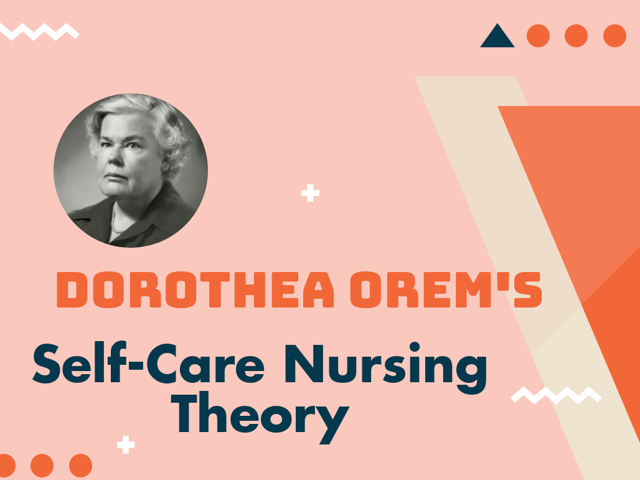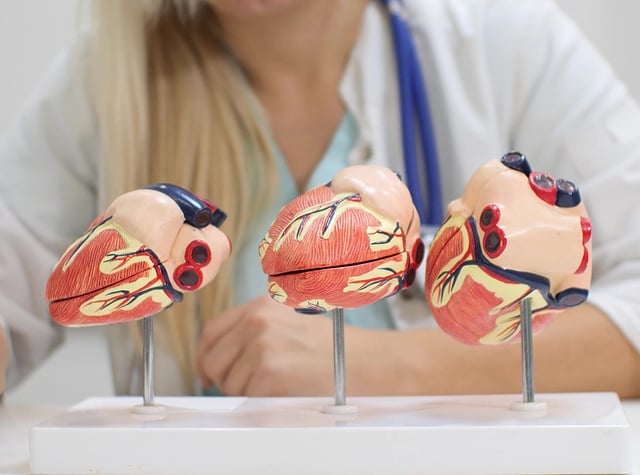
All About Dorothea Orem’s Self-Care Nursing Theory
In its infancy, nursing was a field wholly dependent on medicine for direction. Nurses were the individuals to whom physicians delegated tasks and orders. But over the years, a number of innovative nursing professionals sought to bring the deserved recognition and respect to the field. One of those key individuals was Dorothea Orem, who developed her Self-Care Theory of Nursing.
When Did Orem’s Theory Originate and What Does It Say?
Orem’s theory first appeared in 1971 when she completed her Nursing: Concepts of Practice while working as a curriculum consultant. As the National Library of Medicine said about her, “Dorothea Orem believed that people have a natural ability for self-care, and nursing should focus on affecting that ability.”
So, What Does the Theory Mean?
The theory puts forth that the role of nursing is to fill in the gaps where patients cannot care for themselves. Orem believed that patients would perform their own care to maximize their own well-being and would only require care from a medical professional when they are unable to care for themselves. This reveals the key tenet of Orem’s theory: that nursing is a reactive action rather than a proactive one. It only becomes appropriate for nurses to provide assistance and care for patients when they are not able to do so themselves.
How Does This Affect Nursing Care?
Orem believed that nurses had five approaches for helping patients return to independence with self-care:
-
Acting on behalf of and caring for others.
-
Navigating others through the steps necessary to provide care.
-
Supporting fellow nurses and supporting patients in administering and continuing care needs.
-
Providing an environment that promotes personal independence instead of relying on nursing.
-
Educating each other to reinforce skill-building at all stages of the nursing spectrum.
On What Assumptions Is Orem’s Theory Based?
Orem’s Self-Care Deficit Theory also put forth six fundamental assumptions:
-
People are presumed to be self-reliant, responsible for their personal care and that of anyone in their family who may be in need of care.
-
Each person is a distinct individual.
-
Nursing should be considered a form of action because it is an interaction occurring between two or more individuals.
-
One of the key factors for the prevention and the eradication of illness and poor health at the primary care level is to successfully meet developmental and universal self-care requirements.
-
The knowledge that someone has about his or her potential health issues is a necessary element for any self-care behaviors he or she may be able to execute.
-
Self-care and dependent care are both learned behaviors within the framework of a socio-cultural element.
These assumptions are based on the notion that everyone has the desire to be capable of performing the basics of self-care, also known as the activities of daily living or ADLs.
How Can You Determine that There Is a Self-Care Deficit?
Dorothea Orem’s theory also contained three steps for determining whether there was a self-care deficit that needed to be addressed. They are very similar to the traditional Nursing Process, but they contain greater detail.
Step #1: Data Collection
Achieved through assessment of the patient, this step reveals why nursing is needed for the provision of care.
Step #2: Organization
In this step, the nursing care plan is created for outlining which processes are required to bring the patient back to health and maximum independence with self-care.
Step #3: Assistance
The final step involves putting the care plan steps into action to help the patient develop the ability and skills to enhance their self-care independence.
Each of these steps is carried out with the tools, technology, and nursing skills best suited to accomplish them. They are designed to promote the health and independence of all patients who enter the healthcare system.
You’ll need to know all about Orem’s theory if you are looking to study nursing. If you are still in the application process, you will likely need to take the TEAS or HESI exam. If you’re in nursing school, you will need to take and pass the NCLEX-RN or NCLEX-PN before you get your license. Check out all of our study content at Union Test Prep to help you at whatever stage you’re in of your nursing career. Good luck!

Keep Reading

Health Education Systems Incorporated Exam Blog
HESI Anatomy and Physiology Review: A Comprehensive Guide
As you prepare for the Health Education Systems, Inc (HESI) Admission A…

Health Education Systems Incorporated Exam Blog
How to Pass the HESI Exam: A Comprehensive Guide to Acing Your Nursing Entrance Exam
If you’re considering becoming a nurse, the HESI exam can be a crucial …

Health Education Systems Incorporated Exam Blog
The Complete Guide to HESI Exam Scores
Are you ready to become a nurse? Many nursing schools require entrance …